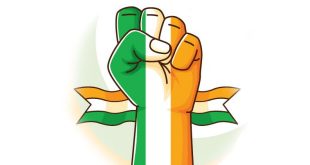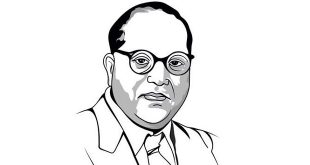Question: Who calls the meeting of the Gram Sabha and Gram Panchayat? Answer: It is the Secretary who calls the meeting of the Gram Sabha and Gram Panchayat. Question: What problems do the women of Hardas village face? Answer: The women of Hardas village have to go to the Suru …
Read More »Search Results for: education
NCERT 6th Class (CBSE) Social Science: Essence of Democracy
Question: Name the various races that live in South Africa Answer: Various races that live in South Africa are: Black people who belong to South Africa Whites who came there to settle Indians who came as labourers and traders. Question: What do you mean by apartheid? Answer: Apartheid means separation on people …
Read More »NCERT 6th Class (CBSE) Social Science: Diversity and Discrimination
Question: How do we feel in the company of the people who are very much like us? Answer: We feel safe and secure in the company of such people. Question: Define the term ‘prejudice’ with an example. Answer: Prejudice means to judge other people negatively or see them as inferior. …
Read More »Gandhi Jayanti Speech For Students And Children
Gandhi Jayanti Speech We have provided below variety of speech on Gandhi Jayanti for the students under various words limit according to their class standard. All the Gandhi Jayanti speech are written using very easy words and small sentences for the students. Dear students, you can select any of the …
Read More »NCERT 7th Class (CBSE) Social Science: The Human Environment: Settlement, Transport and Communication
Question: What do you understand by the term human settlement? How did settlements emerge? Answer: Human settlements refer to the locations where people build their homes. Around these settlements human communities develop. A community is a group of people living in a particular area and bound by a common culture …
Read More »NCERT 7th Class (CBSE) Social Science: Role Played by Gender
Question: What do you understand by the term gender? Answer: The way each society perceives what a ‘man’ is and what a ‘woman’ is, and what their different roles and responsibilities are, is called gender. It is more than the biological difference between men and women. Question: What is a stereotyping? Give …
Read More »Asyndeton Examples: Asyndeton for Students and Children
This is not just another figure of speech. The power, force, intensity and vehemence this device infuses into any writer’s, or speaker’s, work can be commendable. The rapid effect while keeping the audience hooked on to the edge is what an asyndeton statement does. Evolved from the Greek word asyndetos; …
Read More »Television: A Modern Marvel – English Essay for Students and Children
Television is one of the marvels that modern science has gifted to us. As a Means of communication it has no equal. A message given on the television can reach the homes of millions of viewers all over the world. It is one of the most powerful mediums of education …
Read More »Adjunction Examples: Adjunction for Students and Children
Just like we add spice to our meals to make them taste better, adjuncts are used in sentences to amp up their meaning and make them more luculent. Adjunctions are fun to play with and can be a single word, a phrase or a clause. Adjuncts have adverbial functions and …
Read More »NCERT 7th Class (CBSE) Science: Forests: Our Lifeline
Question: Define the following terms: Primary Consumers, Secondary Consumers, Scavengers, Dispersal of seeds, Global Warming. Answer: Definitions are as under: Primary Consumers: The primary consumer is the living organism that eats the producers, which are the plants. This means that all organisms that are classified as herbivores, also called plant-eaters, fall into the category of primary …
Read More » Class Notes NCERT Solutions for CBSE Students
Class Notes NCERT Solutions for CBSE Students








